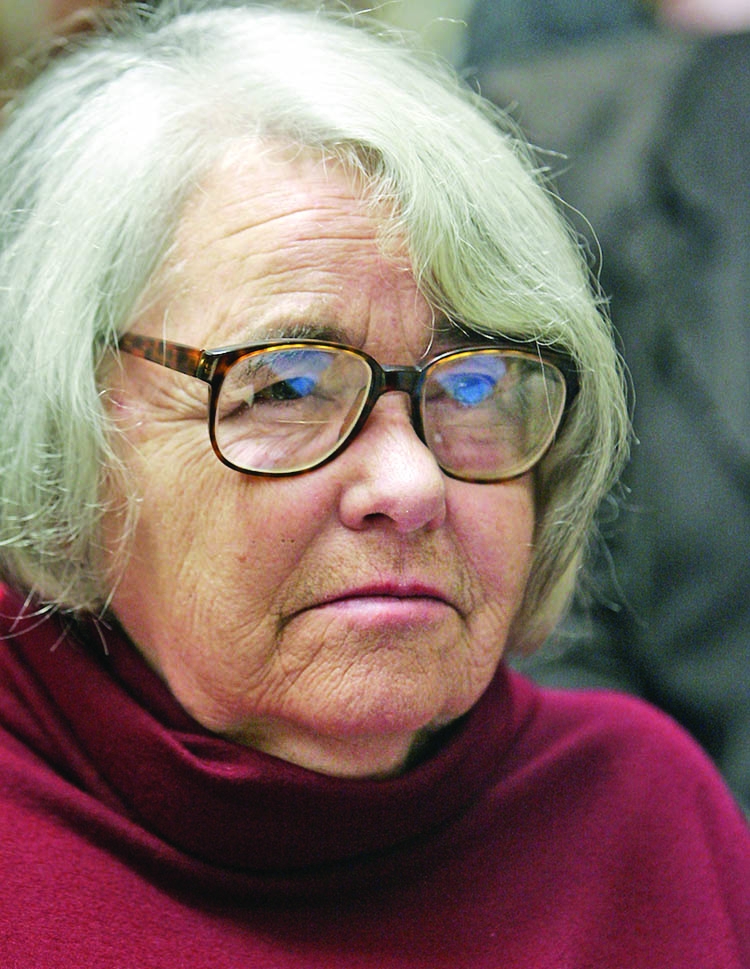Published: 01:10 AM, 14 September 2017
Kate Millett's radical spirit

Kate Millett, the pioneering feminist author, died last week, at the age of eighty-two. Her obituaries report that she suffered a heart attack while on vacation in Paris, a city she loved, with her spouse, Sophie Keir, on an annual trip the couple took to celebrate their birthdays; it is some small comfort to those who mourn her to hope that her last days were as joyous, adventurous, and loving as that biographical detail suggests.
Millett was born and raised in Minnesota, and studied literature at Oxford University before beginning a career as an artist and writer. She was propelled to unlikely fame in 1970, with the publication of "Sexual Politics," which had started out as her literature dissertation at Columbia University and became one of the seminal texts of second-wave feminism. (Columbia University Press published a new edition of the book in 2016, to which I contributed an afterword that was excerpted on this site.)
"Sexual Politics" is erudite and angry in equal measure: a thrilling and damning critique of the patriarchy and its structural effects. "Male supremacy, like other political creeds, does not finally rely in physical strength but in the acceptance of a value system which is not biological," Millett wrote, and proceeded to demonstrate how that value system was instituted, and how it might be dismantled. First-wave feminism had burned itself out in an attempt to work within the system: having achieved the vote, the movement collapsed in exhaustion.
"The suffrage campaign reminds one of nothing so much as a flat tire encountered early on a long journey-a flat which takes so much time, labor and expense to repair that the journey is dejectedly abandoned," Millett wrote, with characteristically pointed humor. The efforts of latter-day feminists, she argued, should not be incremental but revolutionary-should consist in the over-all repudiation of the structural lie upon which society is founded, a lie that insists that gender stereotypes are natural rather than cultural. "There is no way out of such a dilemma but to rebel and be broken, stigmatized and cured," she wrote. "Until the radical spirit revives to free us, we remain imprisoned in the vast gray stockades of the sexual reaction."
Millett, a radical spirit herself, was the subject of a rather perplexed profile in time, in 1970, which discerned her relevance without having the vision necessary to measure her significance. (An editor's note observed that "reporting on the activities of militant groups is never an easy task" and informed its readers, "in the hope that they could gain an understanding of their subjects that no man could, TIME drew widely on its large group of women staffers to gather material" for the article.) To Time, Millett described the genesis of her book as lying in a speech she gave at Cornell University, in November, 1968. "It was a fiery little speech directed at girls, witty and tart and stuff like that-at least I thought it was," she told her interviewer. "I used to listen to it rhapsodically on tape. It needed a job of editing, but at the time, I thought it was glorious." She was right: it was. "Sexual Politics" remains a model for combining rigor and passion, and a manifesto for a revolution we might yet hope to see completed.
The writer is a journalist. The write-up has appeared on www.newyorker.com
The writer is a journalist. The write-up has appeared on www.newyorker.com




